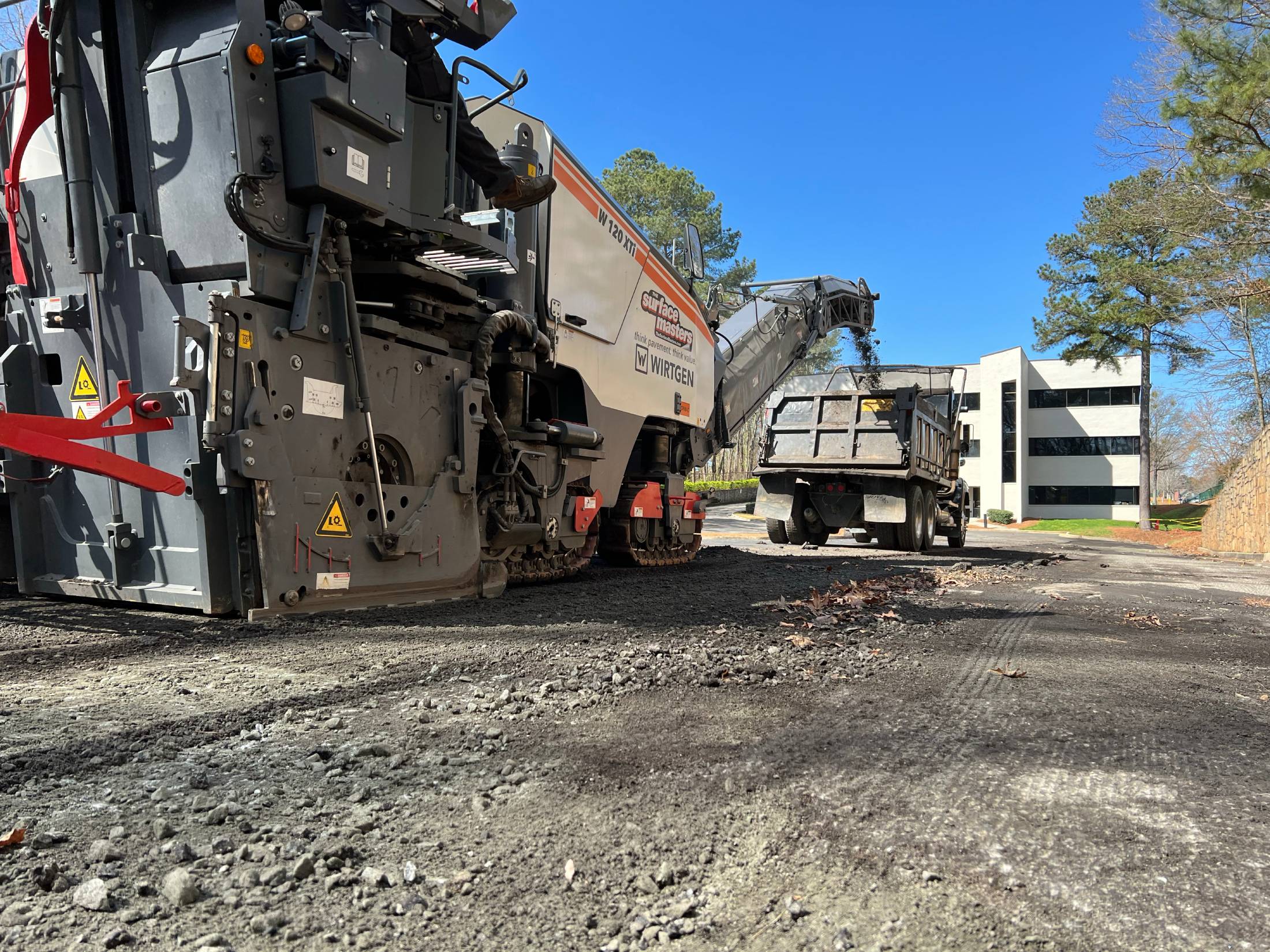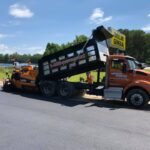Asphalt paving is prized for a variety of qualities, including a smooth, attractive surface. Whether you have a new pavement constructed or an overlay installed, you will likely be dismayed if the surface is not as smooth as you expected. Although there are several things that could lead to a rough, unsightly surface, in most cases, the problem is either an error in the asphalt mix or compaction issues.
How Might an Error in the Mix Affect the Surface Smoothness of Asphalt Paving?
Paving asphalt is typically a mixture of crushed rocks, sand, and asphalt. The aggregates make the pavement stronger, and, in conjunction with the asphalt, help hold the pavement together. Paving contractors must ensure that all aggregates are the right size and shape, and they must also ensure that a sufficient amount of asphalt is included.
1. The crushed rocks should not be round or have smooth edges. If your asphalt contractor is to deliver a long-lasting pavement with a smooth surface, the aggregates will need to be tightly compacted. Round or smooth rocks are extremely difficult or impossible to compact so that there are no gaps between the particles. Gaps make the pavement weaker and more likely to deteriorate prematurely, but they also affect the smoothness of the surface.
2. The size of the aggregate matters. When installing asphalt paving Atlanta contractors place layers, also known as lifts or courses, and compact each lift before placing the next one. Depending on the asphalt overlay or pavement design, lift thicknesses can vary. However, your paving company should ensure that each lift thickness is at least three times the size of the largest aggregate.
3. Liquid asphalt is poured over the aggregate to coat the particles and bind them together. At this stage, the asphalt will have a thick, soupy consistency that allows it to flow as needed to coat the crushed rocks. The asphalt should be at least two inches deep for proper coating and binding to occur.
How Might Compaction Issues Affect the Surface Smoothness of Paving?
Proper compaction is critical for both the pavement’s longevity and smoothness. Compaction issues can arise only when installing an asphalt overlay, only when constructing a new pavement, or on both types of projects.
1. The paving contractor allows the asphalt to cool too much before it is worked and compacted. When choosing an asphalt contractor, it is important to select someone with experience in projects of similar size and complexity to your own. This helps ensure that your contractor will know how to time the asphalt deliveries, has the right equipment for the job, and employs a sufficient staff of workers.
2. When compacting an overlay, rollers can shove the asphalt forward, creating what is known as a bow wave. This is a common problem if the overlay is placed on top of cracks in the existing pavement that have been recently repaired with a crack sealant. The sealant’s adhesive nature resists forward movement of the roller, and this can leave an unwanted bump.
3. Ironically, it is possible to compact asphalt too much. If the mix is compressed too much, it tends to become brittle, and brittle asphalt tends to chip or crack easily. An experienced asphalt contractor will plan the rolling pattern so that sufficient compaction will be achieved with the minimum number of passes.
The Surface Masters is an experienced paving company serving the Atlanta metropolitan area. We offer a variety of services, including asphalt overlaying and paving, sealcoating, parking lot striping, crack sealing, concrete work, asphalt milling, pavement marking, and asphalt repair. We have an exemplary reputation and impeccable references. If you are interested in receiving a free quote, you can either submit our online form, or you can call 770-250-6392.


